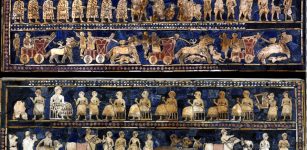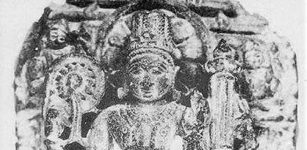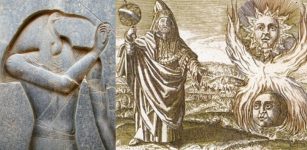On This Day In History: Twelfth Council Of Toledo Initiated By King Erwig – On Jan 9, 681
AncientPages.com - On 9 January 681, the Twelfth Council of Toledo was initiated by the new King Erwig, a king of the Visigoths in Hispania (680–687).
One of its first actions was to release the population from the laws of Wamba and recognize Erwig with the help of thirty-eight bishops, four abbots, and five palatine officials.
The Third Council of Toledo, 589. Codex Vigilanus, fol. 145, Library of the Monastery of El Escorial.
Date cap to A.D. 976 (from fets ocorreguts to A.D. 589) Source Black and white illustrative engraving of the original in color. Public Domain
The council recognized the right of the metropolitan archbishop of Toledo to consecrate all bishops appointed by the king, even if they were outside his own province. Thus was born the priority of the Toledan diocese over all of Spain.
The council implemented various measures against the Jews, enacting twenty-eight laws against them. The bishops ordered the reading in all the churches of the canons against the Jews.
The canons were first read in the church of Santa María in Toledo on 27 January. They conserved all acts of abjuration and conversion of Jews, prohibiting conversos from returning to Judaism. Otherwise, the persecution of Jews was isolated to the confiscation of goods.
The council, at the request of Erwig, revised the Forum Iudicum of Reccesuinth to right perceived injustices and contradictions. The revised law came into effect on 21 October.
However, the council suppressed laws against violence toward enslaved people.
The general trend of all modifications and new legislation favored the nobles and their privileges.
The church of Galicia was sanctioned in its treatment of enslaved people, and the extant paganism of the province was condemned. The nomination of bishops by the kings was forbidden. In religious matters, the bishops dealt with penance, death, ex-communication, the number of sees, the election of bishops, the mass, and clerical discipline.
The date of provincial synods was fixed on 1 November every year. The previous date had been in May, since the Fourth Council. The provinces were ordered to hold at least one synod per annum.
The short council terminated on 25 January.
AncientPages.com





















